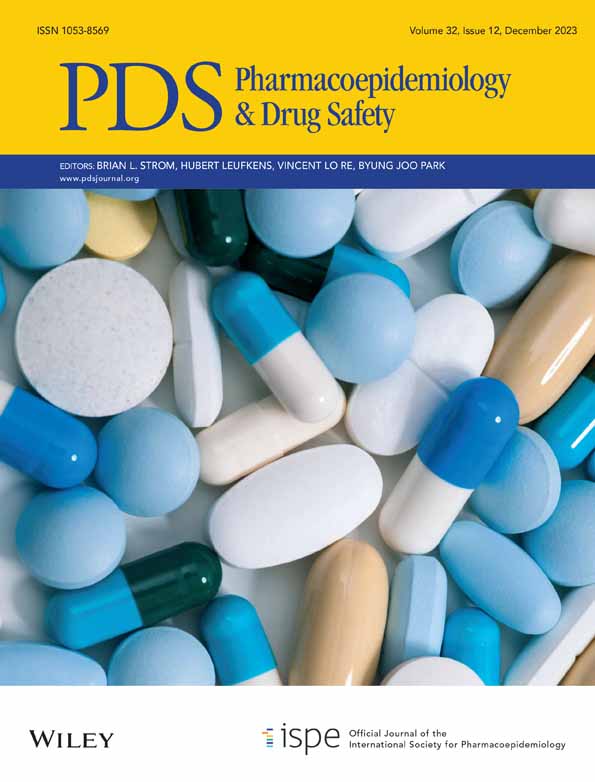Sex-specific incidence of hepatitis B virus flares among Bcr-Abl tyrosine kinase inhibitor users in Taiwan
Abstract
Background
The use of Bcr-Abl TKI was found to be associated with hepatitis B (HBV) flares, with a more profound risk observed in females. This study was conducted to characterize the clinical features of patients with HBV flare among Bcr-Abl TKI users, to estimate sex-specific incidence rates of HBV flare, and to evaluate potential cumulative effect of Bcr-Abl TKI.
Methods
Bcr-Abl TKI users with chronic HBV infection were identified from Taiwan's National Health Insurance database. The HBV flare cases were identified within the cohort. Incidence rates of HBV flare between men and women were assessed. Nested case–control analysis was used to evaluate the cumulative effect of Bcr-Abl TKI use on HBV flare.
Results
Among 415 patients with chronic HBV infection treated with Bcr-Abl TKI from 2005 through 2018, 45 flare cases (28 males and 17 females) were identified. Days between Bcr-Abl TKI initiation and HBV flare was 319 days in women compared to 610 days in men. 66.7% of the flares occurred during TKI therapy. Twelve of the 45 patients died, half of them died around 6 months after hepatitis B flare. Incidence rates of HBV flare were 2.34 and 3.33 per 100 person-years in males and females, respectively. Higher incidence was observed among patients with chronic myeloid leukemia. Cumulative effect of Bcr-Abl TKI on HBV flare was not observed.
Conclusion
Approximately 10% of HBV carriers who used Bcr-Abl TKI experienced HBV flare in Taiwan. The risk was higher in women and among patients with chronic myeloid leukemia.
CONFLICT OF INTEREST STATEMENT
K. Arnold Chan received research grants from Amgen, Boehringer Ingelheim, Takeda, and MSD during the execution of the study. None of them are manufacturers of Bcr-Abl TKI.
Open Research
DATA AVAILABILITY STATEMENT
The protocol and the statistical code are available on justified request. Under the law and National Health Insurance regulation in Taiwan, databases extracted cannot be made available.




